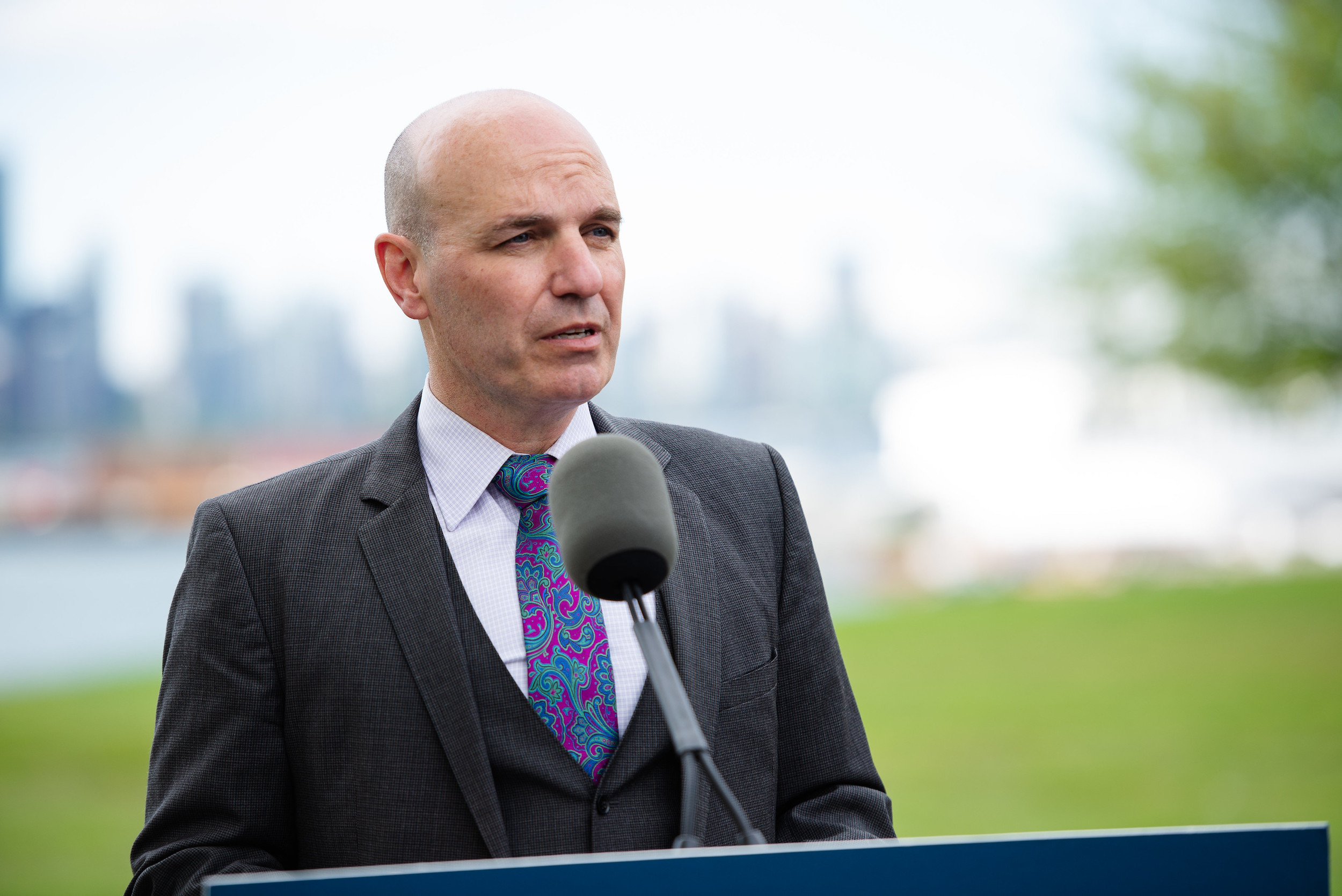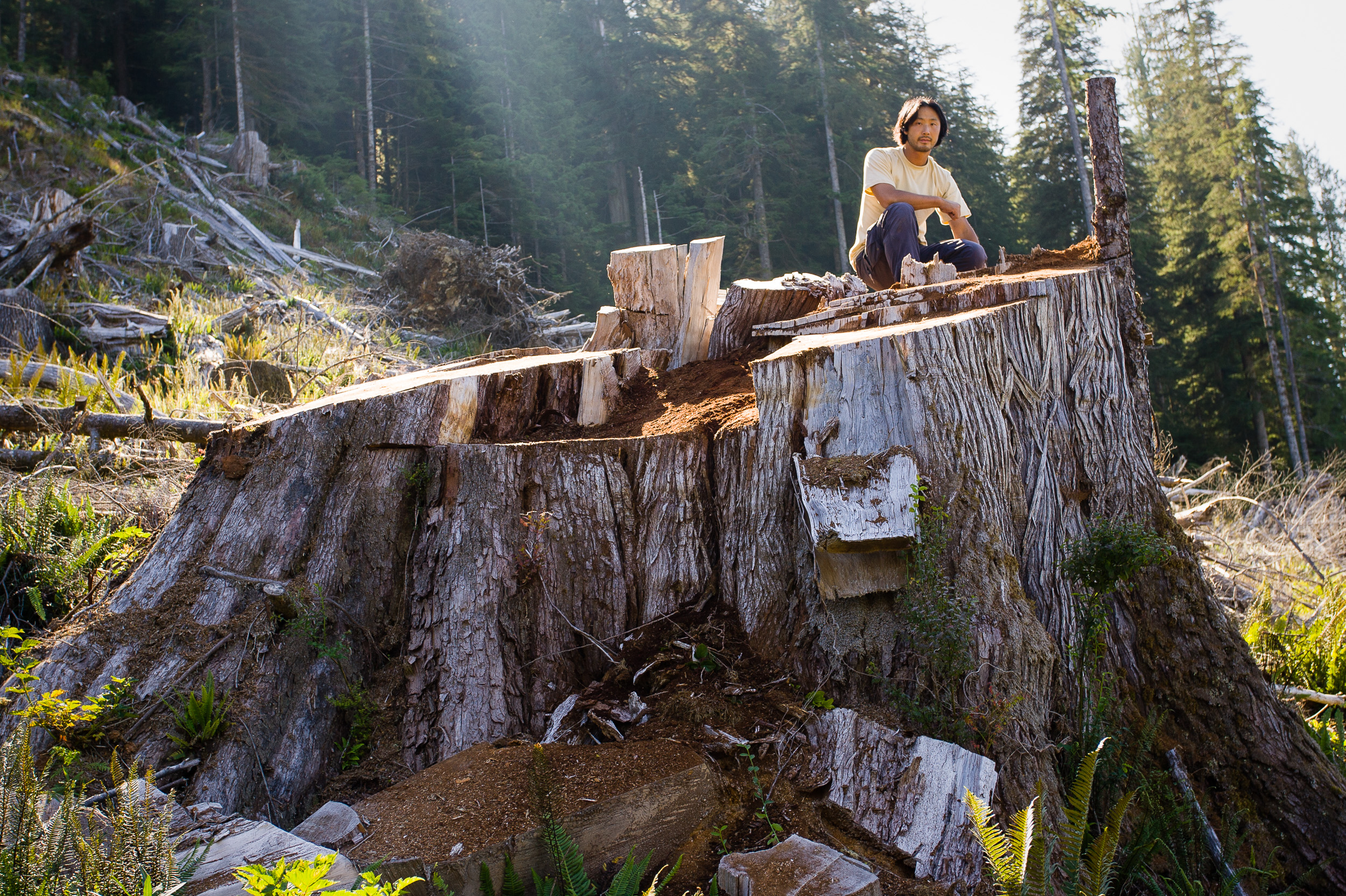
Ontario’s public service heads back to the office, meaning more traffic and emissions
For 15 years and counting, my commute from Mississauga to Toronto has been mired by...
A BC Conservative Party government would walk away from the province’s commitment to protect 30 per cent of its land base by 2030, party leader John Rustad told The Narwhal in an interview.
“The Conservatives would absolutely axe doing that,” Rustad said. “That’s nonsense.”
“It’s 30 per cent of all of our ecosystems,” he said. “What are we going to do if we have 30 per cent less food production? What are we going to do if we’re going to have 30 per cent less forestry production? What are we trying to achieve here as a province?”
Rustad’s comments come as the BC Conservatives surge in the polls five months before the provincial election, with Premier David Eby calling the Conservatives “a real threat” to the NDP’s chances of regaining power. An Abacus Data poll released May 14 showed the Conservatives only eight points behind the BC NDP, which has been in government since 2017. A Pallas Data poll released May 16 put the two parties in a dead heat, with the BC Conservatives leading the NDP by one point at 38 per cent of the vote.
Rustad has led the upstart BC Conservatives for just over a year, after being kicked out of the opposition BC Liberal caucus in 2022 for promoting a social media post that expressed doubt about climate change science. Since Rustad’s acclamation as party leader, and as the popularity of federal Conservative Party Leader Pierre Poilievre grows, support for the BC Conservatives has steadily climbed.

The BC NDP’s pledge to protect 30 per cent of the province was made as the world faces a growing biodiversity crisis. It follows a commitment from almost 200 countries, including Canada, to address the unprecedented loss of wildlife and biodiversity worldwide by protecting 30 per cent of their land and waters over the next six years. According to the World Economic Forum, biodiversity loss and ecosystem collapse represent one of the largest risks the world faces over the next decade, with dire consequences for the environment, humankind and economic activity if not addressed.
Rustad asserted that protecting more land in B.C. would “create more vulnerability” for residents, saying 15 per cent of the province is already protected in some form. He also said B.C. has “more protected land … than any other jurisdiction” in Canada.
In 2023, all provinces and territories agreed to contribute to the federal government’s 30-by-30 conservation targets, saying in a joint statement they would help work toward “halting and reversing biodiversity loss by 2030 and to put nature on a path to recovery by 2050.”
The BC Conservatives are also pledging to repeal B.C.’s law upholding the United Nations Declaration on the Rights of Indigenous Peoples.
“The vast majority of [B.C.’s Declaration on the Rights of Indigenous Peoples Act] is fine,” Rustad, who was minister of Aboriginal relations and reconciliation under the former BC Liberal Party government, said in the interview. But he said the legislation effectively gives First Nations a veto over activities on their land, a claim countered by the B.C. government and many others.
“The government doesn’t admit it, but they won’t make any decisions unless they reach consensus — that’s equivalent to a veto,” Rustad said. “I want to see us actually go after what I call economic reconciliation. We need to work with First Nations, we need to help them get engaged economically — not to take from one people to give to another, but to add to the economic pie to make sure that First Nations can prosper from the land, from their traditional territories.”
Minister of Water, Land and Resource Stewardship Nathan Cullen called Rustad’s stance on conservation targets unfortunate, telling The Narwhal the 30-by-30 targets have broad support in B.C.
“I’m hearing more and more from the natural resource sector, from hunters and conservationists and environmentalists, that [the] relationship-based approach, rights-based approach is a good way to go,” said Cullen, who is responsible for implementing the conservation policy.

“Indigenous-led conservation through land use planning processes is the way that we’ll achieve durable and diverse conservation. We can bring communities together — [and] bring our best science and understanding together — to make sure that the conservation that we undertake represents the many diverse ecosystems in B.C. and is done in full co-operation leadership with First Nations rights and title holders.”
The Na̲nwak̲olas Council is one of the Indigenous groups currently participating in discussions about how B.C. can implement 30-by-30 conservation targets. In an interview, council president Dallas Smith said the policy’s positive impacts will reach far beyond the areas protected, adding the council is interested in expanding the Great Bear Rainforest protected areas on land and in the marine environment.
“It’s about how do we actually make a sustainable path going forward that includes the economy, and community human wellbeing as well,” Smith said. “That’s just the way it’s got to work going forward. We can’t have these discussions in isolation anymore.”
Smith is no stranger to provincial political life, having run for the BC Liberals (now called BC United) in 2017. When Rustad was minister of Aboriginal relations and later minister of forests, lands and natural resource operations in the BC Liberal government, Smith was part of the negotiating process that led to bilateral agreements with First Nations.
Smith, who said he once considered Rustad a friend, called the Conservative party leader’s stance on the 30-by-30 conservation targets policy short-sighted, especially since the province has already begun to negotiate land protection agreements with First Nations.
“To have someone like John come back and act like all these agreements [with First Nations] — that started a discussion going in the right direction, finally — are ready to be scrapped is very frustrating because 30-by-30 is actually a good way of bringing it all together so people understand what the target and goal is,” Smith said.
“It also motivates us to find what we do with the other 70 [per cent of the land].”

Rustad’s characterization of what the 30-by-30 policy would mean for B.C.’s food production and forestry sounds like fear mongering, Smith said.
“People don’t know what it is and he seems to want to make them afraid of it. It’s really a scary way of doing things when we’ve already come this far down the line,” he said. “There has been so much significant progress made and he’s threatening to take that all away. That’s a very, very, very concerning thing to not only First Nations, [but] I think to all the people who have started to see the benefits of the collaboration that reconciliation has brought.”
Ken Wu, executive director of the Endangered Ecosystems Alliance, said it’s unlikely any agricultural land in B.C. would be impacted by creating new protected areas.
“Farming occurs on private lands, not on Crown lands where the protected areas expansion will occur, and private lands are only protected from willing sellers after buying their lands at an agreed upon price,” Wu pointed out in an interview. “[Rustad] knows that, but he mentions ‘farms’ as a misleading, bogus dog whistle to rouse up his base.”
“We are on the precipice of the biggest protected areas expansion in B.C.’s history but it may be cut short if the BC Conservatives get in,” Wu said.
Last November, the NDP government dedicated $500 million to advance the conservation policy and the federal government also chipped in $500 million. Of that, $50 million is earmarked to permanently protect “high priority” old-growth forests.
“They should be given huge kudos for this,” Wu said.
While concerns have been raised about how the province is defining protected areas — the NDP government has yet to make details public — Wu said he is encouraged by the effort he has seen so far.
“[The NDP] is now moving forward with negotiations over dozens of Indigenous Protected and Conserved Areas projects of First Nations across B.C., totalling thousands of square kilometres, to protect ecosystems and their cultures,” he said. “In B.C., protected areas require the consent and shared decision-making of the local First Nations whose territories they will be established in.”

According to the BC Conservatives website, if the party forms government it would also reverse many of the climate action policies the BC NDP has championed since it came to power in 2017, including eliminating the carbon tax and low-carbon fuel standard.
B.C. hasn’t had a name-brand Conservative government for nearly a century — although the role was filled by the now defunct Social Credit Party for more than 30 years, ending in 1991.
Wu emphasized the importance of recognizing what is at stake in this year’s election for the future of conservation and biodiversity protection in B.C.
“I want to be sure that no environmental group comes forward with any nonsense false equivalency, that because there have been failings from the NDP so far — and I recognize where those genuine failings have been — that’s not the same as having an agenda that is antagonistic and diametrically opposed to these goals,” he said.
Enbridge Gas will face Waterloo Region in a hearing before the Ontario Energy Board to renew an agreement that would allow the company to continue...
Continue reading
For 15 years and counting, my commute from Mississauga to Toronto has been mired by...

For our last weekly newsletter of the year, we wanted to share some highlights from...

The fossil fuel giant says its agreement to build pipelines without paying for the right...